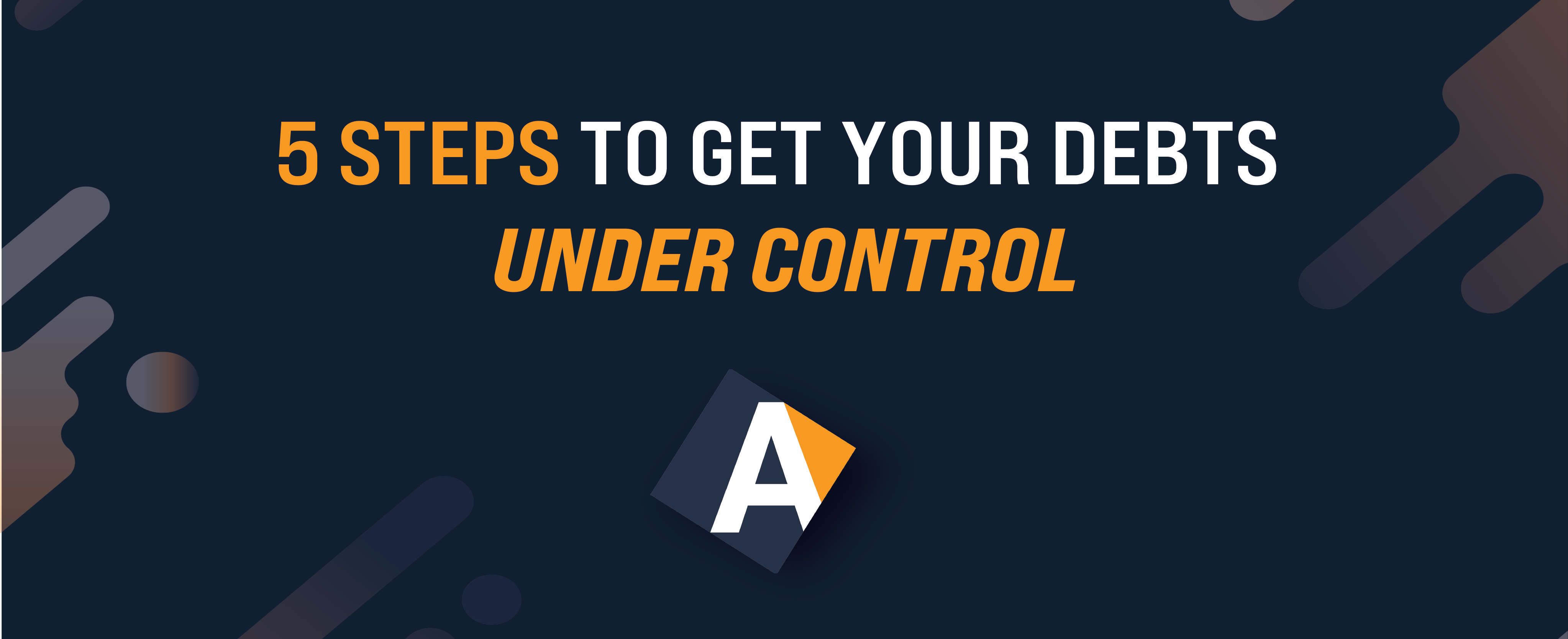1. KNOW WHAT YOU OWE
The first step is to get a clear picture of what you owe.
Make a list of all your debts, showing:
- How much each debt is
- The minimum monthly repayment (if any)
Include credit cards, loan repayments, unpaid bills, fines and any other money you owe.
Then add up all the debts to see how much you owe in total. It may be confronting, but remind yourself.
2. WORK OUT WHAT YOU CAN AFFORD TO PAY
The next step is to work out how much you can afford to pay towards your debts.
COMPARE MONEY IN AND MONEY OUT
The easiest way to do this is to do a budget.
List all the money you have coming in each month (income), such as salary or benefits. Then list all the money going out (debts and expenses), for things like food, rent or mortgage, credit cards, electricity, phone and transport.
Tally these up, then compare money in and money out.
MAXIMISE YOUR ENTITLEMENTS AND FIND SAVINGS
If your income has dropped because of the coronavirus, check if you're eligible for extra Government financial assistance.
If you have more money going out than coming in — it's time to make some choices. Think about what are:
- 'needs' (can't do without)
- 'wants' (could do without, at least for a while)
Identify some expenses that you can cut or reduce. Be realistic — don't make it impossible to stick to. See living on a reduced income for ways to reduce your spending
3. PRIORITISE YOUR DEBTS
Work out which debts are your priority debts and try to pay them first if you can. Priority debts include:
- rent or mortgage payments
- council rates and body corporate fees
- electricity, gas and water
- car repayments — if you need your car for work or essential travel
If you can't keep on top of these you can request financial hardship. You could also request financial hardship for lower priority debts like:
- internet and phone bills
- credit cards
- payday loans or consumer leases
The National Debt Helpline has a step-by-step guide and can help you to prioritise your debts.
Before you jump into anything, talk to a free, confidential financial counsellor. They can explain your options and help you make a plan.
Source: ATO
---
If you have difficulty with tax accounting, you can contact Allan & Co, we will help you out.
Email: This email address is being protected from spambots. You need JavaScript enabled to view it.
Phone: (02) 9709 5070



